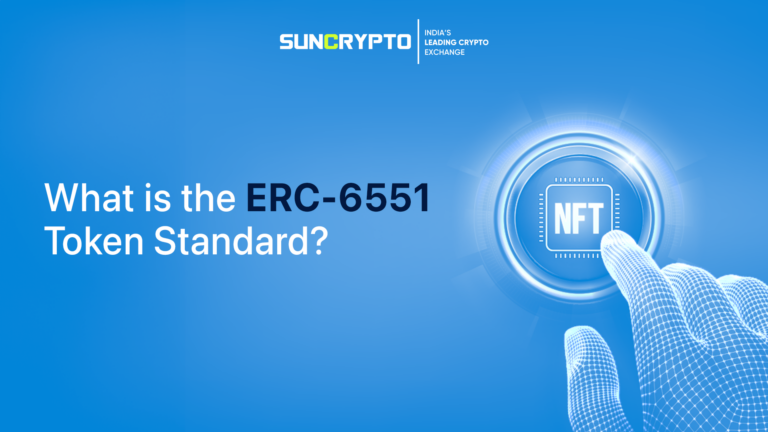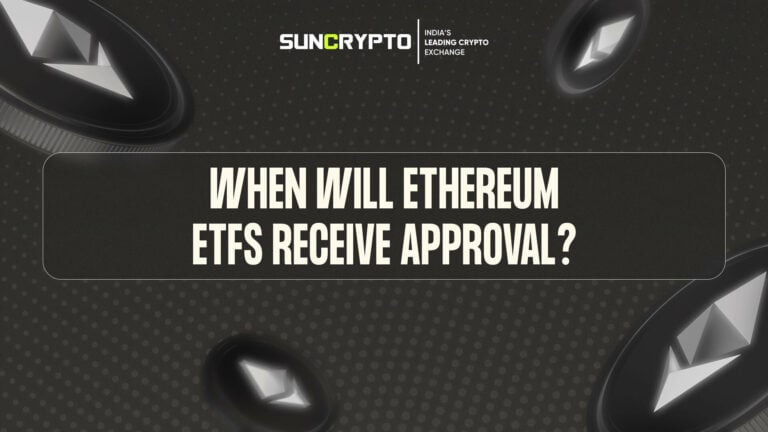Smart contracts, as introduced in their current form by the Ethereum blockchain, are a vital building element for the Web3 sector. They serve as the foundation for DeFi, NFT, gaming, and other popular Web3 services.
Smart contracts are how developers build DApps on blockchains, whether to codify arbitrary agreement terms between mutually untrusting parties, create automated and decentralized exchanges, or produce both fungible and non-fungible assets. For a brief overview of smart contracts and their implications for society, keep reading our informative piece.
Smart Contract Explained
A smart contract represents a digitally coded agreement stored on a blockchain, executing automatically without intermediaries. Leveraging blockchain’s security and transparency, smart contracts enable the enforcement of agreements and the streamlining of diverse processes.
These contracts prove beneficial for direct transactions between two parties, eliminating the need for a third party to oversee the buyer-seller contract. For instance, in purchasing digital art, the conventional route involves an art gallery acting as an intermediary.
Contrary to this reliance on a middleman, a smart contract utilizes computer code to automatically enforce the terms of the agreement, resembling a virtual “if-then” statement. For example, upon the buyer’s transfer of the agreed-upon amount, ownership of the digital artwork shifts from the seller to the buyer.
Since smart contracts operate on blockchain technology, they remain decentralized and immutable once deployed. This feature ensures their security and trustworthiness, allowing other blockchain users to validate transactions and uphold the contract’s intended execution.
Usecaes of Smart Contracts
The applications of smart contracts surpass mere buying and selling, expanding blockchain’s potential by introducing new functionalities impossible within traditional systems. Current applications include:

▪️ Financial Transactions: Smart contracts securely handle digital currency transfers, payments, and complex financial agreements, enabling direct peer-to-peer execution.
▪️ Decentralized Applications (DApps): Serving as the foundation for various DApps, smart contracts facilitate decentralized finance (DeFi) platforms, gaming environments utilizing non-fungible tokens (NFTs), and platforms for creating, owning, and trading unique digital assets.
▪️ Insurance: Automating insurance processes, and smart contracts streamline claims processing, eligibility verification, and payouts, reducing paperwork and enhancing efficiency.
▪️ Supply Chain Management: Ensuring transparency and traceability, smart contracts track goods across the supply chain, automating processes like order fulfillment, payment settlement, and quality control.
▪️ Intellectual Property: Managing ownership and distribution of intellectual property through smart contracts, often leveraging NFTs. Creators define licensing terms, automate royalty payments, and ensure equitable asset distribution.
▪️ Voting Systems: Facilitating secure and transparent voting, smart contracts safeguard vote integrity, prevent fraud, and enable instant result tabulation, enhancing trust in democratic processes.
How do Smart Contracts Function?
The operation of smart contracts relies on a fusion of blockchain technology, code execution, and decentralized consensus. Here’s an uncomplicated breakdown of the intricate mechanics behind smart contracts:

▪️ Creation and Deployment: A smart contract is fashioned by a developer using a programming language compatible with the blockchain platform (like Solidity for Ethereum) and then deployed onto a blockchain network, integrating it into the decentralized ecosystem. While Ethereum smart contracts are widely used, developers can utilize other blockchains like Solana and Cardano that support smart contract functionalities.
▪️ Code and Terms: Contained within the smart contract is code that delineates the terms, regulations, and prerequisites of a particular agreement or transaction. These terms might range from a straightforward single payment to intricate multi-step processes involving multiple participants and specific data points.
▪️ Contract Invocation: After deployment, anyone with blockchain access can invoke the smart contract by engaging with it. This typically entails triggering specific functions within the contract and furnishing the requisite inputs.
This might involve regular users accessing a user-friendly interface or application, like a decentralized application (DApp) employed with a crypto wallet. Users can then select their desired action (e.g., purchasing a crypto token), specify the amount, and submit a request to complete the trade.
▪️ Validation and Execution: Upon invocation, the blockchain network validates the transaction, ensuring compliance with the contract’s conditions. This validation is carried out by numerous nodes on the network via a consensus mechanism, such as Proof of Work (PoW) or Proof of Stake (PoS).
▪️ Immutable Recording: Once conditions are validated and the consensus is achieved, the smart contract’s code is automatically executed, and the transaction is documented as an immutable entry on the blockchain. Depending on the blockchain, this entry may encompass all relevant transaction details, ensuring transparency and auditability.
▪️ Finality: The execution of a smart contract is irreversible, stored on a decentralized and tamper-resistant blockchain. This guarantees the transaction’s integrity and security, thwarting fraud or unauthorized alterations.
What Are the Downsides of Smart Contracts?
Despite their numerous advantages, smart contracts also present several drawbacks. Here are some of the disadvantages associated with them:
▪️ Reliance on External Data: Smart contracts often depend on external data sources, referred to as oracles, to access information from the outside world. While the contracts themselves are secure from tampering, these oracles can introduce potential vulnerabilities or inaccuracies due to their susceptibility to manipulation and tampering.
▪️ Code Vulnerabilities: Similar to any software, smart contract code may harbor vulnerabilities or bugs exploitable by malicious individuals. Mistakes in code implementation or design can lead to security loopholes that might cause financial losses or other adverse outcomes. To mitigate risks, thorough testing of smart contracts is essential prior to deployment.
▪️ Scalability: The expansion in size and usage of blockchain networks may trigger scalability and performance challenges. The limitations of these networks could affect the speed and effectiveness of smart contract execution, particularly during high-demand situations.
▪️ Immutability: Once deployed and executed on a blockchain, a smart contract becomes immutable and incapable of modification or reversal. While often considered an advantage, this trait can pose issues if there are errors or bugs in the code or if the contract requires updates due to changing circumstances.
How Are Challenges in Smart Contracts Resolved?
The cryptocurrency community is highly conscious of the limitations and hurdles linked to smart contracts and is actively engaged in resolving them. For instance, numerous crypto platforms have instituted bug bounty programs offering substantial rewards to incentivize ethical hackers, developers, and researchers to pinpoint and responsibly disclose vulnerabilities present in smart contract codes.
Additionally, there exist specialized smart contract audit companies providing services for comprehensive security assessments aimed at detecting and rectifying vulnerabilities within smart contracts. Their objective revolves around adhering to superior practices to ensure secure coding standards, employing methods such as rigorous testing, meticulous code reviews, and formal verification techniques for smart contracts.
Moreover, developers share a common objective to develop tools, frameworks, and norms that enhance smart contract development methodologies. One avenue for achieving this lies in standardization initiatives geared toward establishing uniform interfaces, protocols, and structures for smart contracts.
This approach fosters enhanced interoperability and guarantees compatibility across various blockchain platforms, streamlining the integration of smart contracts with other protocols and facilitating smooth interactions.
Is Smart Contract Functionality Present in Bitcoin?
Bitcoin’s scripting language enables the formulation of basic smart contracts, yet its capabilities remain more constrained compared to programmable smart contract platforms like Ethereum. The Script programming language in Bitcoin empowers users to establish spending rules and conditions for their BTC.
However, it isn’t tailored for intricate smart contract functionalities. Moreover, Bitcoin can facilitate smart contracts via protocols constructed atop its network, such as the Lightning Network.
You might be curious about how Bitcoin NFTs and Ordinals utilize smart contracts. They do not operate through smart contracts; instead, the files are directly embedded into individual satoshis, which subsequently become part of blocks within the Bitcoin blockchain.
Conclusion
Smart contracts are self-executing digital contracts that enforce contract obligations without the use of middlemen. They use blockchain technology to increase transparency, security, and efficiency. Smart contracts have the ability to transform traditional business procedures by enabling safe and automated transactions, lowering costs, and introducing new features.
Smart contracts obviously have some negatives, but the crypto community and individual protocols are working hard to address these issues through continuous testing, security measures, and ongoing development initiatives.
To learn more about Ethereum Smart Contracts, go check out SunCrypto Academy
Disclaimer: Crypto products and NFTs are unregulated and can be highly risky. There may be no regulatory recourse for any loss from such transactions. All content provided is for informational purposes only, and shall not be relied upon as financial/investment advice. Opinions shared, if any, are only shared for information and education purposes. Although the best efforts have been made to ensure all information is accurate and up to date, occasionally unintended errors or misprints may occur. We recommend you do your own research or consult an expert before making any investment decision. You may write to us at [email protected].





